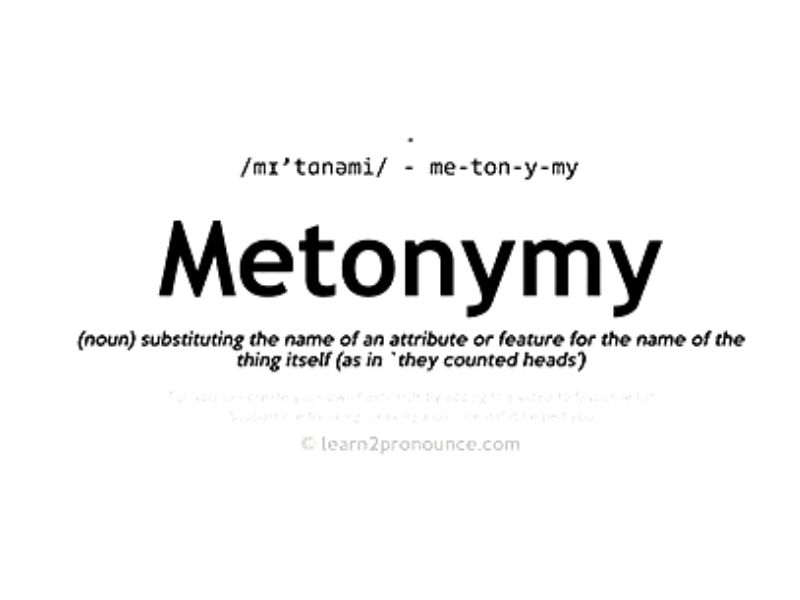 In the UK media, the British monarch is popularly referred to as The Crown. This is an example of metonymy — a figure of speech in which a thing or concept is referred to by something closely associated with it.
In the UK media, the British monarch is popularly referred to as The Crown. This is an example of metonymy — a figure of speech in which a thing or concept is referred to by something closely associated with it.
The use of metonymy dates back to ancient Greece. It originates from the Greek word metonymia which means change of name (meta meaning ‘among’ and onyma ‘name’). There are many examples of metonymy in literature and everyday life. For example in the sentence ‘The White House is concerned about terrorism’, the White House represents the people who work in it and especially the President of the United States. Similarly when we read that ‘The Oval Office is busy’, it means the people (including the US president) who work in the Oval Office are busy.
In everyday parlance, people often say, ‘Let me give you a hand’. What it means is ‘Let me help you’. The word hand describes help. There are many idioms which use metonymy. For example, ‘The pen is mightier than the sword’, the pen refers to written words and sword to military force.
Literature abounds in interesting examples of metonymy. For instance ‘heart’ is often used to mean love and ‘grave’ could mean death.
In William Shakespeare’s Julius Caesar, Mark Antony famously says, “Friends, Romans, Countrymen, lend me your ears”. The ‘ears’ are Shakespeare’s metonymy for listeners paying attention.
American poet Robert Frost’s poem Out, Out also has a fine example of metonymy:
“As he swung toward them holding up the hand
Half in appeal, but half as if to keep
The life from spillin.”
The phrase ‘the life from spilling’ refers to the spilling of blood, i.e, the loss of too much blood is akin to loss of life.
In Margaret Mitchell’s all-time best-seller Gone with the Wind, the heroine Scarlett O’Hara says: “I’m mighty glad Georgia waited till after Christmas before it secedes or it would have ruined the Christmas parties”. Scarlett uses Georgia to indicate everything that composes the state: its citizens, politicians, and the government. It is a metonymy very common in the modern world, where the name of a country or state refers to the whole nation and its government. Thus, it allows complicated ideas to be expressed briefly.
Metonymy is used to create symbolism and give deeper meaning to otherwise common ideas and objects to attract the reader’s/listener’s attention. Moreover, the use of metonymy helps the cause of conciseness. For instance, “Rifles were guarding the gate” is more evocative than “The guards with rifles in their hands were guarding the gate”.
Exercise
Explain the metonym used in these examples:
1. “But now my oat proceeds, And listens to the herald of the sea…” — Lycidas by John Milton
2. “The little buried mole continues blind,
Why flesh that mirror Him must someday die…” — Yet Do I Marvel by Countee Cullen
3. “I thought Hollywood has stopped making many musicals now.”
Answers
1. John Milton uses ‘oat’ for a musical instrument made out of an oat stalk. Thus, ‘oat’ represents the song that the poet is composing beside the ocean.
2. Cullen uses ‘flesh’ to represent humans, and questions God why we have to die when we are created in His likeness.
3. Hollywood refers to the American film industry.
Roopa Banerjee

























